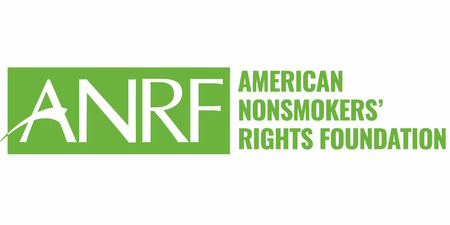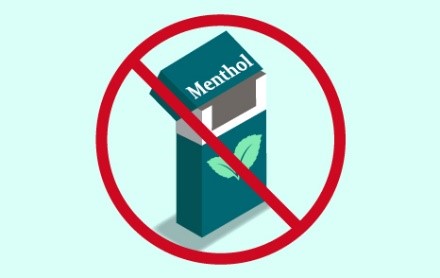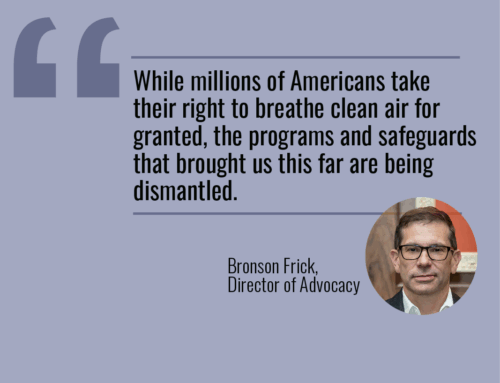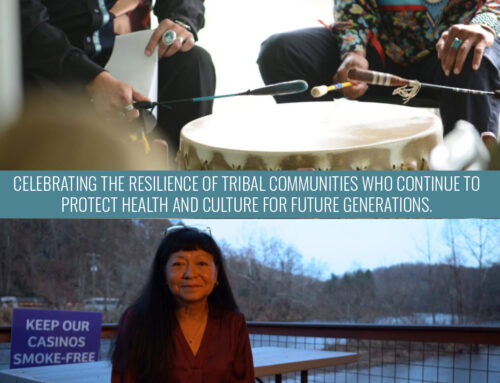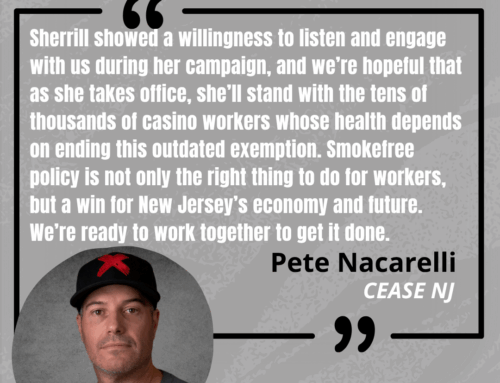By Onjewel Smith, ANR Foundation Southern States Consultant
May 11, 2022—Under the smokescreen of social justice, Big Tobacco is pimping Black leadership and stoking community tensions to protect its most dangerous flavor—mentholated tobacco products.
As the FDA moves closer to setting standards for prohibiting mentholated tobacco products from the marketplace, the tobacco industry is aggressively working to undermine the effort – using African American advocacy leaders as spokespersons, paying protesters to rally in opposition, and spreading lies and misinformation about the intent of menthol bans.
For decades, the tobacco industry has profited from a carefully crafted marketing plan to promote mentholated cigarettes to the Black community. Oversaturation of advertising in Black American magazines and newspapers, billboards on every corner, and retail outlets overwhelmed with products and promotions that dominate the shelves, doors, and windows of every gas station and corner store in the neighborhood. The industry’s investments yielded high returns as 75% of Black Americans who smoke choose a mentholated product.

See more images at Stanford’s site: Research into the impact of Tobacco Advertising
The payoff: big profits for the tobacco companies and death and disease for their customers. In fact, tobacco use is the leading cause of preventable death for Black Americans and is a risk factor for the top three causes of death in Black Americans—heart disease, lung disease, and cancer.
Knowing what we know about tobacco’s impact on the Black community, we’d be remiss if we didn’t work aggressively for remedies to achieve health equity. As such, the growing effort to remove mentholated tobacco products from the marketplace is intended to address the problem at its source—the tobacco industry and manufacturers who have been pushing out their poisoned products with no remorse for loss of life or quality of living.
Let’s be clear—laws that end the sale of menthol products, whether local, state, or federal, will apply to those entities that manufacture, distribute, or sell tobacco products. The regulation will not occur at the consumer level.
Despite Big Tobacco’s claims, ending the sale of menthol will not increase policing of black and brown communities. In fact, there is no need to police this law at all. Accountability falls upon the tobacco industry to eliminate the ingredients from their products altogether. There should be no mentholated tobacco products on retail shelves. There should be nothing to buy, and thus, nothing to check at the individual level. Period. People will still be able to lawfully use menthol products. Law enforcement won’t be checking to see if there is menthol in their cigarettes, or bidis, or cigarillos, or other tobacco product of choice.
But, somehow, the tobacco industry has co-opted the Black community’s fight for justice into a selfish undermining of public health efforts and a crafty promotion to continue targeting the most disenfranchised with its most addicting ingredient.
To those “advocates for justice” speaking out against ending the sale of menthol—I wonder how many of you have given the same amount of attention to understanding just how detrimental mentholated tobacco products are to black and brown communities. With such a strong and public position in defense of Big Tobacco, I would hope that you have considered evidence from both sides.
I would hope that you have not allowed Big Tobacco to spoon-feed this narrative to you. How can you side with the tobacco industry? Did you even question why the industry would care about the over-policing of Black men?
Since when does the tobacco industry care about public health and safety? The industry lied about the danger of their products when they knew that nicotine was addictive and that smoking leads to death and disease. Tobacco companies have a history of leaving expired product, some showing signs of rot and infestation, on retail shelves in urban markets.
- The same industry that has a track record of reimbursing retailers for product loss when “loosies” are left accessible like “take one” items on the counter and end up in the hands of new smokers or already-addicted smokers who are willing to spend their last two dimes, literally, on a smoke.
- The same industry that tried to launch a new line of cigarettes branded simply as “X” in the colors of red, black, and green (the Black liberation colors) during Black History Month and to tie to the title of Spike Lee’s movie Malcom X, but they said the “X” was for the number 10 and was a mere coincidence.
- The same industry of which an executive was asked the question, “Which brand do you smoke” and answered, “We don’t smoke that sh-t. We reserve that right for the young, poor, black, and the stupid.”* Yes. They want you to believe that they now care about Black men being harassed by police. You are siding with THAT industry. They convinced you to leverage your name and credibility to argue to keep their best-selling, most-addictive, tobacco products in production as a way to keep Black folks safe?
You should consider the source.
*R.J. Reynolds executive’s reply when asked why he didn’t smoke according to Dave Goerlitz, lead Winston model for seven years for R.J. Reynolds.] Giovanni, J, “Come to Cancer Country; USA; Focus,” The Times of London, August 2, 1992.
No Menthol Sunday, this Sunday, May 15th is an annual observance led by the Center for Black Health & Equity. It is an event to engage faith leaders and their communities in a discussion about how to improve health and reduce health disparities for Black people.
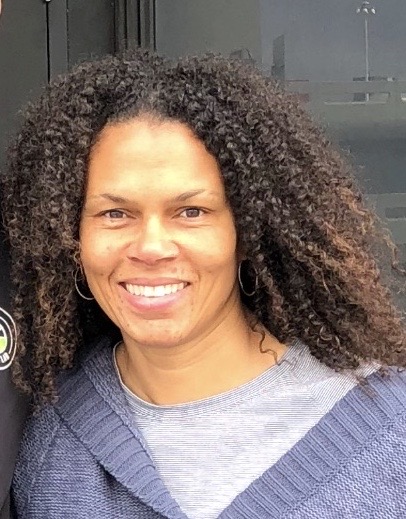
Onjewel Smith, ANR Foundation’s Southern States Strategist, has worked in the nonprofit sector for more than 20 years helping organizations and communities build their capacity for sustainable change. She has conducted sessions on grassroots advocacy, coalition building, strategic planning, and fundraising. Throughout her career, Ms. Smith has helped develop strategic alliances between local coalitions, community based organizations. In addition, she has helped organizations develop diverse revenue streams through earned income, donor development, and grant solicitation.
Ms. Smith served as the Deputy Director of the National African American Tobacco Prevention Network. She worked closely with communities throughout the country to reduce tobacco industry presence (products, marketing, and influence) in African American communities. Ms. Smith also worked closely with local and statewide tobacco control networks, providing technical assistance to their efforts to reach out to and involve African American and other communities of color.
